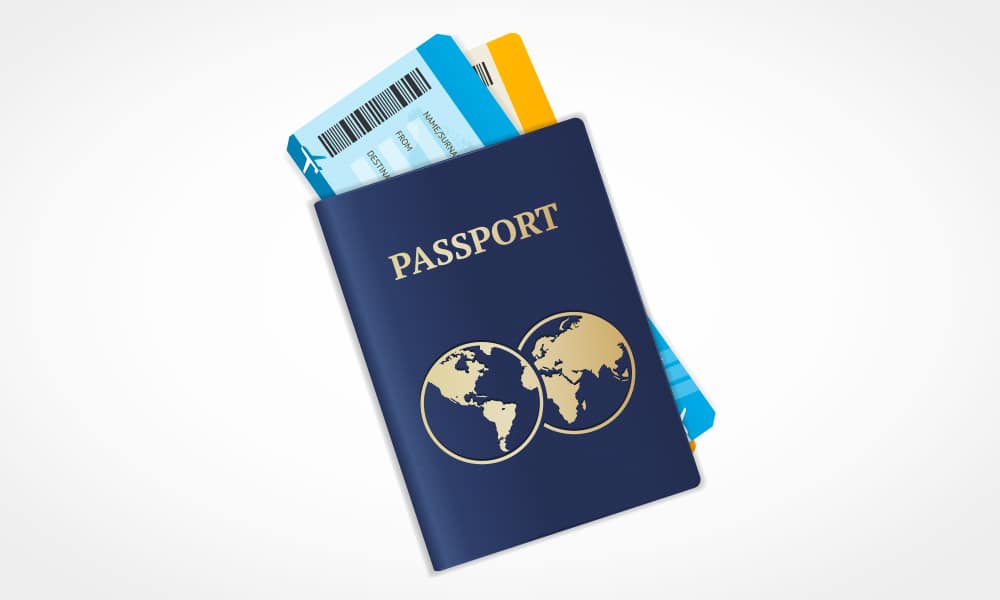


Does any of the traveller have any pre-existing medical condition like BP, diabetes etc? See what it means ›
Now covers COVID-19
The Right Travel Cover Starts with the Right Questions: Where, How Long, How Old
Not all travel insurance is made equal—and rightly so. The way you plan your holiday isn't standard, so how can your protection be? Whether it's a month-long Euro trip or a family beach holiday in Bali, one-size-fits-all travel insurance doesn't work.
Before buying travel insurance, you should consider three things:
- Where are you going?
- How long will you be away?
- How old are you?
And here's why these three aspects hold significance more than most people think.
Travel Insurance Plans on PolicyBazaar#1
- Individuals
- Sr. Citizens
- Students
Where You're Going Changes the Whole Equation

Where you go affects everything—from healthcare costs to baggage rules. Your travel insurance should be adequate accordingly.
Domestic vs International
- If you are travelling within India, medical costs are lower. No need for hefty overseas cover.
- If taking a foreign trip, you must remember healthcare in the US or Europe can burn a hole in your pocket. Your travel health insurance should cover emergency medical, hospitalisation, and even flight delays due to bad weather.
Region-Specific Needs
- Schengen countries require mandatory travel insurance with a minimum of €30,000 medical cover.
- If the USA or Canada are on your mind, go higher as hospital stays and even minor doctor visits are expensive. Choose a policy with a high sum insured (often $500,000 or more).
- Planning for Southeast Asia or Gulf countries? Look for coverage on baggage loss, missed connections, and passport replacement.
Quick Tip: Some countries even ask for proof of travel insurance before granting a visa. Always check entry requirements before you book your flight.
Trip Duration Affects What You Need
The length of your journey isn't just about the calendar. It shifts your exposure, which shifts your coverage needs. The longer you're away, the more exposed you are to surprises (the kind you don't want).
-
Short Trips (1-15 Days)
For short holidays, a single-trip plan with essentials—like medical emergencies, trip delays, and lost baggage—often suffices. It's functional and fits the pace of a quick getaway.
-
Medium-Length Travel (2-4 Weeks)
As your stay gets longer, the layers build up. You are likely to have multiple bookings, stopovers, or even plan changes. Here, a broader cover—trip cancellations, missed connections, medical evacuation—adds a practical layer of security.
-
Long Stays (1+ Month)
Extended travel calls for more robust insurance. Whether you are studying abroad, visiting family for a season, or travelling for work, look for plans that include outpatient treatment, hospitalisation, and even compassionate visits. These longer policies are designed to protect not just the traveller—but also their commitments. You can also look for the relevant add-on covers to widen and strengthen your protection.
Your Age Says More Than You Think
It's not just about how old you are—it is about what your age means for the kind of cover you need.
Young Travellers (18-35)
- Lower premiums, broader options.
- Adventure sports add-ons can be useful.
- Watch out for exclusions if you're on a backpacking or volunteer trip.
Mid-Age (35-60)
- Medical checkups are usually not needed.
- Go for plans that balance medical and travel-related benefits.
- Useful add-ons: home burglary while travelling, loss of passport, and delayed baggage.
Senior Citizens (60+)
- Most insurers offer specialised senior travel plans.
- These include:
- Pre-existing disease cover (limited)
- Emergency cash support
- High medical limits
- Check waiting periods and claim limits on hospitalisation.
What Travel Insurance Should Include
The best travel insurance policies cover more than the obvious—they protect your time, health, and plans. The usual inclusions in travel insurance are as follows:
- Emergency Hospitalisation: Serious illness or injury abroad can become unaffordable; hence, emergency hospitalisation coverage is non-negotiable.
- Outpatient Care: It is required because even a simple fever or allergy needs treatment, and you shouldn't have to think twice.
- Lost or Delayed Baggage: When essentials go missing mid-transit, your insurance can help you replace what matters.
- Passport Loss or Theft: Replacing a passport abroad is stressful. Overseas travel insurance helps you take care of the process and cost.
- Trip Cancellation: If illness or unforeseen events cancel your plans, you will be able to recover your prepaid expenses if the cancellation reason is included in the policy terms.
- Missed Connections: Good travel insurance reimburses the gap when you miss a connecting flight because of reasons beyond your control and delay costs you booking losses.
- Emergency Evacuation or Repatriation: This feature is critical in case of serious illness or natural disasters, especially in remote areas.
- Personal Liability: If you accidentally cause harm or damage to a third party overseas, this protects you from financial and legal trouble.
What Isn't Usually Covered in Travel Insurance
No travel insurance policy covers everything. And knowing what's excluded can save disappointment later. Most common exclusions are:
- Travelling Without Valid Documentation: If your visa is denied or expired, yet you choose to go on the trip, you are travelling uninsured.
- Injuries From Risky Activities: Adventure sports are generally not included. You usually have to add it separately as an optional cover.
- Substance Misuse or Intentional Harm: No insurer covers injuries from reckless behaviour or self-harm.
- Undisclosed Pre-existing Conditions: If a health issue exists, you must decalre it before travelling. Undisclosed issues are rarely covered.
- Routine or Cosmetic Treatments: Travel insurance does not cover elective procedures.
- Negligence: Missed flights due to oversleeping or personal errors won't be reimbursed.
Add-ons Worth Considering
Think of these as your custom layer of protection—designed around your journey. Look for:
- Adventure Sports Cover: For skiing in Manali or diving in Thailand, this protects against activity-related mishaps.
- Cruise Cover: Covers missed port stops, medical care at sea, and trip disruptions unique to cruise travel.
- Home Protection Coverage: If your home is empty while you are abroad, this international travel insurance cover can cover break-ins or damage in your absence.
- Hijack & Accidental Death Cover: Though a rare event, it compensates for each day of air hijacking.
Don't Leave It to Luck
Travel insurance is more than a checkmark—it's a small decision that can have a huge impact when things go sideways. So don't buy the first plan you see. Instead, ask yourself:
- Is my destination medically expensive?
- How long will I be away?
- Am I travelling alone, with family, or for work?
- Am I fit, or do I have medical needs?
- Do I plan to do anything out of the ordinary?
You don't usually think about insurance when a travel plan goes smoothly. But when it doesn't, you will be glad you thought through the details.
STANDARD TERMS AND CONDITIONS APPLY. For more details on risk factors, terms, and conditions, please read the sales brochure carefully before concluding a sale.
Policybazaar Insurance Brokers Private Limited, Registered Office - Plot No.119, Sector - 44, Gurgaon, Haryana - 122001 | CIN: U74999HR2014PTC053454 | Policybazaar is registered as a Composite Broker | Registration No. 742, Valid till 09/06/2027 | License category - Composite Broker | Contact Us | Legal and Admin Policies
*Price shown is for a 180 day trip to Thailand with 50 thousand dollar coverage for an adult of age 25 years




































